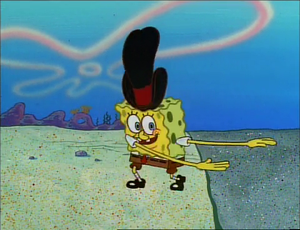11309471
Chapter 7 - Blood and Circulation
Description
No tags specified
Flashcards by Zita Wormuth, updated more than 1 year ago
More
Less

|
Created by Zita Wormuth
about 8 years ago
|
|
Resource summary
| Question | Answer |
| What is the purpose of the circulatory system? | To provide a link between the cells inside the body which have requirement and the outside environment |
| List the functions of the blood (there are 8) | 1. Transporting O² and nutrients to body 2. Transporting Co² and wastes away 3. Transporting hormones to cells 4. Maintaining pH of body fluids 5. Protecting against disease 6. Maintain water content & ion conc. 7. Maintaining body temp. 8. Clotting |
| What is the blood made up of and its %? | Plasma: 55% Formed elements (incl. RBC, WBC and Platelets): 45% |
| What is the scientific name for white blood cells and what are their function? | Scientific name: Leucocytes Remove dead/injured cells and invade micro-organisms. Live for years but only days when infection is present |
| What is the scientific name for Red Blood Cells and what is their function? | Scientific name: Erythrocytes Have no nucleus which allows more room for haemoglobin to allow transport of oxygen |
| What is the scientific name for platelets and what is their function? | Scientific name: Thrombocytes Allow for blood clotting |
| How is oxygen transported? | Oxygen combines with Haemoglobin to create oxyhaemoglobin - increased O² carrying capacity by 60-70x Hb + O² ⇆ HbO² |
| How is carbon dioxide transported? | 7 - 8% is dissolved in plasma 22% combines with 'globin' to create carbominohaemoglobin |
| What is the name of the membrane which covers the heart? | Pericardium |
| What type of muscle is the heart made of | Cardiac muscle |
| What are the 3 types of blood vessels and where do they carry blood to? | 1. Arteries: Carry blood away from heart 2. Veins: Carry blood to the heart 3. Capillaries: Tiny vessels that carry blood between cells |
| What are atrioventricular valves? | Thin flaps of tissue found in the atria and ventricles that catch blood to prevent back flow |
| What are semi-lunar valves? | Valves in the arteries that prevent back flow of blood |
| What are the stages of the cardiac cycle? | 1. Systole: Contraction 2. Diastole: Relaxation 3. Atrial systole: Contraction of atria 4. Atrial diastole: Relaxing of atria |
| What is the formula for cardiac output? | Cardiac output (mL/min) = stroke vol. (mL/min) X heart rate (beats/min) |
| What is the difference between arteries and veins? | |
| How does a blood clot occur? | Formation of threads called fibrin traps blood (causing clot) |
| What is the function of the lymphatic system? | To collect fluid that escapes from the blood capillaries and return it to the circulatory system |
| What is phagocytosis? | When phagocytic cells called macrophages destroy bacteria by injesting them |
| What is a blood transfusion? | Where blood or a blood product is taken from a donor and injected into the patient's bloodstream |
| What is an antigen? | A substance that stimulates the formation of an antibody |
| What are the 4 blood groups? | 1. A 2. B 3. AB 4. O |
| What antigens & antibodies do blood group A have? | Antigen: A Antibody: Anti-B |
| What antigens & antibodies do blood group B have? | Antigen: B Antibody: Anti-A |
| What antigens & antibodies do blood group AB have? | Antigens: A & B Antibody: Neither A nor B |
| What antigens & antibodies do blood group O have? | Antigens: Neither A nor B Antibody: Anti-A & Anti-B |
Want to create your own Flashcards for free with GoConqr? Learn more.
